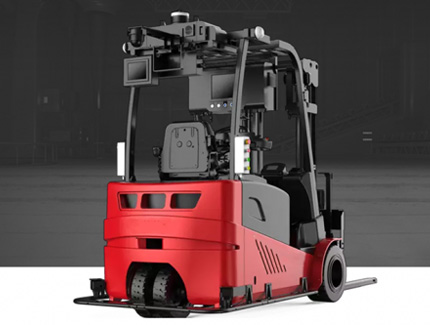What is the difference between lithium batteries and lead-acid batteries for electric forklifts?
Dec 01, 2023
As my country's forklift industry continues to grow beyond expectations, various products and domestic and foreign markets have achieved excellent performance. Among them, the proportion of electric forklifts has steadily increased. At the same time, in the face of the increasingly severe energy situation and environmental protection pressure, as well as the opportunities brought by external conditions such as the development of new energy vehicles and the increasingly mature lithium battery technology, lithium battery forklifts are ushering in development opportunities. in a huge market opportunity. So what is the difference between lithium batteries and lead-acid batteries for electric forklifts? Which one is better? Features are as follows:
1. Compared with large batteries such as lead-acid and nickel-cadmium, lithium-ion batteries do not contain cadmium, lead, mercury and other environmentally polluting elements and are pollution-free. When charging, there will be no "hydrogen evolution" phenomenon similar to lead-acid batteries, and it will not corrode wire terminals and battery boxes. It is environmentally friendly and reliable. Lithium iron phosphate batteries have a lifespan of 5 to 10 years, no memory effect, and no need for frequent replacement;
2. The same port and Anderson plug(Rema High-current battery connector,Forklift Battery Cable Connectors,Original Forklift Battery Connector) are used for charging and discharging, which solves the major safety problem of the forklift being unable to operate when charging due to different charging ports;
3. The lithium-ion battery pack is equipped with an intelligent lithium battery management and protection circuit - BMS, which can effectively and automatically cut off the main circuit in response to low battery power, short circuit, overcharge, high temperature and other faults, and can perform sound (buzzer) and light (display) ) alarm, traditional lead-acid batteries do not have the above functions;
4. Triple safety protection. We use intelligent monitoring and protection devices placed between the batteries, the battery's internal total output, and the bus's total output, which can monitor the battery in real time and cut off protection in special circumstances.
5. Lithium-ion batteries can be used as one of many materials and devices to be integrated into the huge Internet of Things system. It can promptly notify whether the battery needs maintenance or replacement, and automatically count the time of entering the factory, the number of charges and discharges, etc.;
6. For special industries, such as airports, large warehousing and logistics centers, etc., lithium-ion batteries can be charged in "fast charging mode", that is, the battery can be fully charged in 1 to 2 hours during the lunch break to keep forklifts running. The vehicle works continuously when fully loaded;
7. Maintenance-free and automatically rechargeable. After the lithium-ion battery is self-packaged, it does not require any special water injection, regular discharge, etc. Its unique constant-time active balancing technology greatly reduces the workload of on-site personnel and saves huge labor costs;
In fact, until now, lead-acid batteries have remained the first choice in the intralogistics industry due to their low procurement costs. However, continued improvements in lithium-ion batteries and associated reductions in production costs are causing industry professionals to rethink. More and more customers rely on forklifts equipped with this advanced technology to handle their intralogistics tasks.
Read More





 network supported
network supported